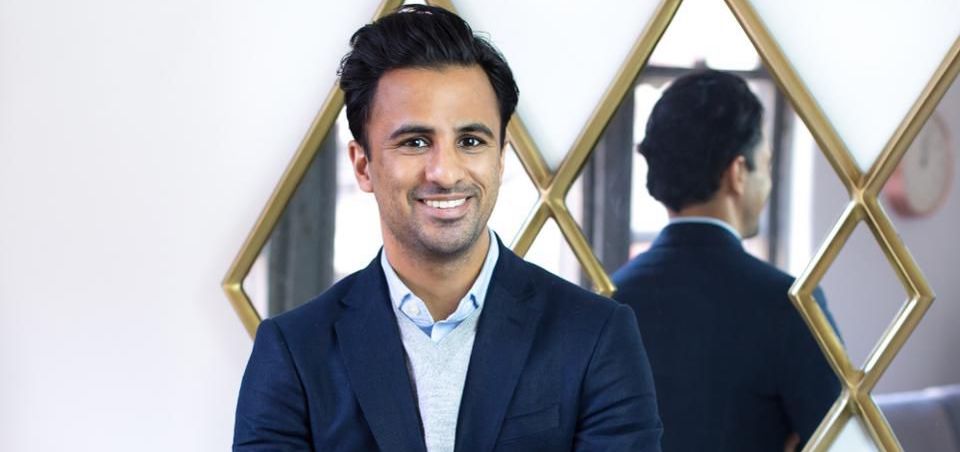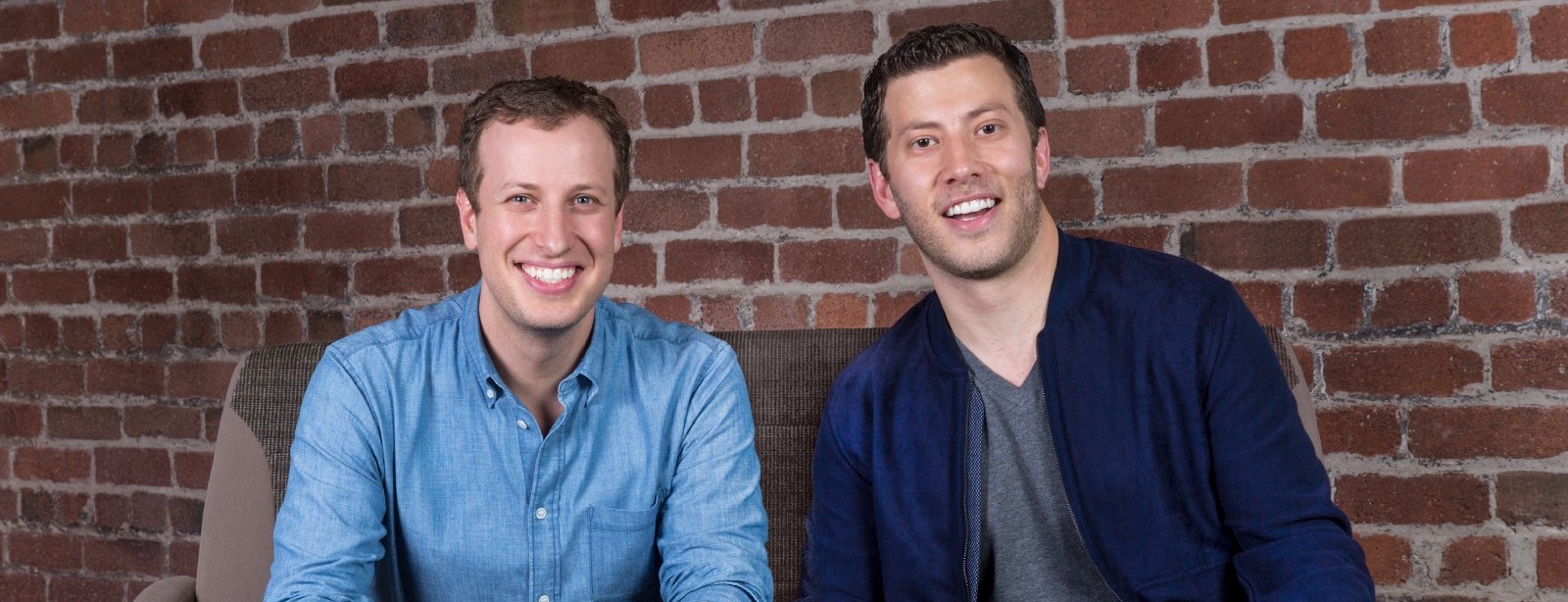
Ethan Agarwal founded Aaptiv in 2015. If you haven’t heard of the mobile fitness app, then you aren’t one of the 200,000 users who have subscribed in the last 2 years. With $52.1M raised and 100+ employees hired, the growth trajectory of the startup is undeniable. In this interview with the inspiring yet down-to-earth founder, learn:
- How his father inspired his journey as an entrepreneur
- Why hiring from your network is vital in the early days
- The benefits of being a solo founder in 2018
- And how a laser sharp focus on one aspect of his startup helped him raise
Q: Every founder has a reason for beginning their company, and no two are the same. What inspired you to start Aaptiv?
Ethan: Well, my Dad started a company in ’94, took it public, and then sold it. Since then, he’s started several more companies. I knew for a while that I wanted to do the same. I started my career in investment banking at Lehman Brothers, working on M&A and IPO’s. I then went to Wharton for my MBA. After graduating, I spent some time at a hedge fund, then worked at McKinsey for three years before starting Aaptiv. The idea that entire time was to have a deep understanding of how companies work. By studying both the qualitative and quantitative side of business over the course of my career, I was able to apply that knowledge to Aaptiv from the start.
I started the company from a selfish need. I put on 30-40 pounds in grad school, so I tried to hire a trainer. At the time, I was on the road a lot. As many people know, trying to hire a trainer on the road is extremely difficult. Even where I live, NYC, there were logistical challenges with getting access to training. I could go to boutique studio classes, but you have to book them ahead of time, classes sell out, you’re penalized for not showing up, etc. etc. As a result of the cost and lack of access, the perception is that training is only for professional athletes or celebrities. That couldn’t be further from the truth. When asked why they don’t exercise, the most common answer given by people is “I don’t know what to do.” So having a trainer can have a binary impact on the quality of a person’s life.
I looked at the market, and despite the plethora of digital options available, I was wondering why none of them solved my problem of lack of access to the trainer. I’m a runner, and I quickly realized the reason was that all digital solutions focused on video. As a runner, you’re not going to run down the street while staring at your iPhone or iPad. As a result, I realized that audio was going to be our differentiator, because it was the best delivery mechanism for cardio content. With Aaptiv, my vision was to create a purely audio, personal training experience at an affordable price that anyone can access.
The idea that entire time was to have a deep understanding of how companies work @ethanagarwal
@aaptiv
Q: Let’s start at the beginning with your MVP. Can you share any anecdotes about how that process went for you?
Ethan: If your product is not finding market fit it just means that you’re not done working on it yet. An MVP is defined as what it takes to just get it out there, the second threshold is that it’s starting to work. For example at Aaptiv, we started with live classes and realized people wanted on demand courses, so we made our content accessible at all times. We also realized people need guidance, so we started building training programs. It’s only when we made those changes that we started to see things pick-up.
In terms of who I hired to build the MVP, I made the mistake of working with an offshore team— that ended up being terrible idea. So I worked the hell out of my network and found two talented developers out of NYC, where I’m based. They weren’t cheap but they were talented. Then, I guided them through exactly what I needed them to build. I’ve realized developers need clear guidance, so I educated myself on how to communicate with developers.. Once I had that down, I worked with them on what I needed them to build. And the question was always “how can I get this out faster”.
If your product is not finding market fit it just means that you’re not done working on it yet. @ethanagarwal
@aaptiv
Q: As a solo founder yourself, do you have any advice for solo founders about navigating the journey without a co-founder?
Ethan: Do whatever it is you need to do to get the product out as fast as possible. If that means finding a co-founder, that’s great. What I wouldn’t do is spend time looking for a co-founder just for the sake of it and waste that time on not building product. Especially in 2018, when there are more resources available than ever— free guides online, peer groups, incubators, etc. This means that a lot of what founders used to rely on other people for, they can now do themselves.
It’s not always going to be easy as a solo founder. When I was raising the first round, the question was always “where’s your co-founder”. But once the product was out there no one was asking that question anymore, because the product and growth spoke for itself.
Don’t spent time looking for a co-founder and waste that time on not building product. @ethanagarwal
@aaptiv
Q: How did you get your first customers? At what point did that shift from a manual process to a more scalable process?
Ethan: In a nutshell, my first 100 customers came organically, then the next 1,000 came in through paid acquisition. Your first customers are always just friends and family so I begged everyone in my close circle to try it. I’m also pretty shameless so I would just go up to people at the gym and ask them to try it. That was how I got my first subscribers. Then when you have a product that’s good, your friends and family naturally tell people about it.
I actually started advertising pretty early to tell people about what I was building. I felt that the market may incorrectly assume that what I had built already existed and if I didn’t have a chance to explain my mission, people wouldn’t understand what it was.
I spent two years learning how advertising works. It’s basic— you start with a hundred dollars a day then work your way up. But once I saw the value of it, the very first person I hired was a growth manager who ran paid acquisition. As much as I knew, I understood there were people who knew a lot more than me. I hired a guy in San Francisco who was working at Zoosk, and moved him to NYCs. The company grew two and a half times in the first 4 months because he was running paid acquisition.
As much as I know, I understood there are people who know a lot more than me. @ethanagarwal
@aaptiv
Q: How did you find your lead investor?
Ethan: It was not easy. I had been pitching for a long time. But I was pitching to see what investors value. Because this was my first company, I needed to decide if i wanted to raise at all. I spent a year or so meeting with every investor you can think of to understand how the market would look at my company. Eventually, we launched the product and started growing. The growth was quite significant, so all the problems investors had with us before sort of drifted away because the growth was undeniable. In September of 2015 we did $5k in revenue, and by March we did $74k. From June to July of that year, we grew by 130%. When you see growth like that folks start coming to the table.
My experience with fundraising made me realize that investors look for at least one of 3 things. And founders need to find out which of those 3 they have, and how they can shine in that one area:
- A rock solid team (usually defined as a history in successfully launching and exiting startups.)
- Amazing technology that no one’s ever seen before.
- Incredible revenue numbers.
When we went out to raise, we didn’t have the first 2 yet, so we focused on revenue growth. We found our one area to shine in, and honed in on that and made it work.
When it came to raising funds, we found our one area to shine in, honed in on that and made it work. @ethanagarwal
@aaptiv
Q: What is one thing you wish you knew at the beginning of your journey as a founder that you know now?
Ethan: The most important thing to know is how all consuming it is. People say it’s hard work starting a company. It’s not just hard work – that’s the easy part – it’s the emotional part that’s hard. A lot of people in various jobs will put in a lot of hours, but it’s different when its your company. As a founder, you have to dedicate every ounce of your being to it. That means missing out on important things in life. It means giving up a lot of sleep, not because you’re working, but because your mind is racing with stress and worry and ideas about your startup. It means a level of devotion and commitment that you’ve never had before. I knew that drive and devotion were integral to getting me to this point.
I meet a lot of founders who have an idea, and claim to be dedicated, then talk about going on a ski trip that weekend or a week long wedding they plan on traveling to later that year. And I sit there and think, “that company’s never going to work” It’s such a competitive landscape. Without a singular devotion to the cause, you’re not going to get there. And I do want to point out, it’s not for everyone, and that’s okay. But if you want to be a successful founder and attract the right talent and investors, you have to say “nothing else in my life matters as much as this thing.” And unfortunately not every founder will get to that point, or realize how significant of a a commitment it is from the onset.
The most important thing to know about starting a company is how all consuming it is. @ethanagarwal
@aaptiv
Q: What’s next for you? What are the risks that you see moving forward?
Ethan: We built out the team pretty considerably last year by adding 62 people. All of that growth is designed to build the product. So we have a number of important milestones in 2018 to increase engagement and retention related to that. We also have some really exciting partnerships coming in Q2, but I can’t announce those yet. We recently became profitable, so we never have to raise another dime if we don’t want to. At the moment, we have about 150,000-160,000 subscribers. But our market is huge and we’re just getting started.
Growing at the rate we have in the last year, internal culture is definitely a concern. At Aaptiv, our strategy is that culture is typically handled by the managers, as opposed to one CEO— that just wouldn’t scale. I spend time working closely with the managers, and make it clear that part of their responsibility is to maintain the culture for everyone that reports to them.






